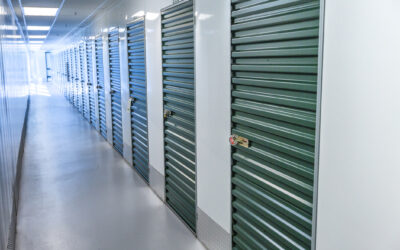Finding out you’re on the hook for huge financial damages — and that your insurance policy won’t cover it — is every business’s worst nightmare. Just ask Metallica (yes, the band!) about the dangers of not knowing exactly what your policy covers – and what it excludes. Thanks to a pandemic-related debacle, the band sought to recoup millions of dollars in costs for concerts that never happened during the lockdown, but — you guessed it — their policy didn’t cover it. The burden of understanding the policy terms falls on the insured, but agents play an important role in educating their clients and identifying potential exposures.
There may be no better illustration of the “not knowing your policy” issue than the Hired and Non-Owned Auto (HNOA) insurance space. For businesses unaware that their delivery drivers are not covered under their commercial auto policy, an HNOA policy can be the solution.
For businesses that utilize vehicles for regular operations, auto coverage gaps can lead to a make-or-break scenario for the operation in financial terms. It’s critical for business owners and their agents to work together to identify what the commercial auto policy covers, whether the operation needs Hired and Non-Owned Auto coverage, and which HNOA policy best fits the business’s needs.
What Does HNOA Insurance Cover?
Simply put, HNOA insurance provides liability coverage for vehicles hired, rented, or borrowed for business use, including employees’ personal vehicles used for work-related tasks. It provides a financial safety net for businesses in instances where the company or its employees are found legally at fault for an accident causing injury, death, or damage to someone else’s property. Monoline Hired and Non-Owned Auto coverage provides essential coverage for operations that use third-party drivers and vehicles for company activities or those who task company employees with activities that require the use of the employee’s personal vehicle.
For a well-known example of hired and non-owned auto risk, simply order a pizza for delivery. Thousands of restaurants across the United States hire staff to make food deliveries to customers, and the drivers typically use their own personal vehicles for these tasks. Should an accident or injury occur, the restaurant may be held liable for the damages because the driver was acting on behalf of the company. Under a standard commercial auto policy, this liability would not be covered, but HNOA coverage can fill the gap.
Typically, hired and non-owned auto insurance offers two main types of coverage:
- Bodily Injury Liability. Coverage for the costs associated with bodily injury resulting from a covered incident.
- Property Damage Liability. Coverage for the costs associated with damage to another person’s property resulting from a covered incident.
Hired and Non-Owned Auto insurance encompasses protection for two categories of vehicles utilized in delivery operations:
- Hired Vehicles. Include vehicles that are rented, leased, or borrowed by the business or its employees for work-related use.
- Non-Owned Vehicles. Include personal vehicles owned by employees, which are used for activities related to the business.
What’s Not Covered by HNOA Insurance?
HNOA policies primarily compensate third parties. In the event of an accident, coverage is directed to the individual harmed by the delivery driver’s actions — not to the driver. With that in mind, Hired and Non-Owned Auto Insurance typically does not cover the following:
- Injuries to Employees. If the driver is injured, the driver’s personal auto, medical, or workers’ compensation plan would be responsible for the costs.
- Damage to the Driver’s Vehicle. If the driver’s vehicle is damaged, costs would be covered by their personal auto insurance or the rental provider’s auto insurance.
- Specific Scenarios. Hit-and-run incidents and theft of business-owned property from the vehicle would not be covered under HNOA coverage.
Choosing the Right HNOA Insurance Policy
From a pizza delivery driver carrying a hot meal to cannabis operations delivering high-priced items, HNOA insurance provides peace of mind, allowing businesses to operate smoothly without the fear of unexpected liability claims. HNOA insurance is a critical layer of security for businesses, especially those heavily reliant on non-owned vehicles for their operations.
Selecting the right HNOA policy requires careful consideration in these areas:
- Specific Business Needs. Insurance agents and their clients can work together to identify the potential risks and exposures based on the company’s specific industry and operations.
- Overall Insurance Strategy. The HNOA policy coverages, limits, and deductibles can be customized to ensure an appropriate level of protection for the business.
- Risk Management Efforts. Implementing a comprehensive risk management plan that includes appropriate auto insurance – including HNOA coverage – helps to mitigate potential claims, lawsuits, and out-of-pocket financial losses for the business.
Deliver with Confidence
MiniCo’s exclusive Hired and Non-Owned Auto insurance program for food and cannabis couriers lets your clients deliver with confidence. Our program offers the benefits of MiniCo’s in-house underwriting authority, coverage for drivers aged 18 years and older, and more. MiniCo’s program is accessible to retail and wholesale brokers. Contact us for more information and to get a quote.




